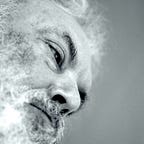Anxiety — a Motor?
Use Anxiety to Propel You
It seems like psychologically every time a person is facing a breakthrough success, they experience a more or less considerable amount of anxiety before the event, be it a musical performance, championship or the release of a product or the return of a risky investment project.
There may be sleepless nights but at the end there may be a real breakthrough. On what does it depend?
It all depends on your ability to handle anxiety.
How to handle it? By reducing stress which is one element that created the peak event, and by activating all your faith that there will be a good outcome at the end, and last not least by the insight that all fear serves a purpose, namely as a motor to a real breakthrough.
It helps to think about anxiety as a motor. As the motor of a car runs on gasoline, so is our body, our entire life powered by vital energy. Research on emotions shows clearly that there is a lot of energy pent up in every peak episode of anxiety, and this energy, once it is released through relaxation, is a surplus energy you will have at your disposition.
Part of the risk we take in life is to be truly authentic. It is much easier to imitate others than to display originality, and to dare a different way in achieving a certain outcome.
Let me present an example. Think of being in a theater to watch a comedy. In this comedy, there are two actors, one plays himself, just behaving as he does every day, saying what he says every day, eating what he eats every day, and calling somebody as he calls people every day.
The other actor plays a role written for the performance. He learns the role, acts out the gestures, watches himself in a mirror, repeats the phrases to be said, over and over, until he knows them. You see him studying his role, while the other actor quietly sits at a table doing nothing. What does he have to do, he doesn’t need to learn a role as he plays himself, and as he knows himself, he knows what to say, what to do, how to move around, and so on. Thus, he doesn’t need to learn anything, nor does he need to put his brain together to learn a role.
Now guess when you are watching this little comedy, which actor are you going to like more? I think most of you will like the one more who plays himself. Why? He comes over as authentic, as real; he is himself, while the other one comes over as fabricated, doll-like, mechanical, or imitative and artificial. The one who plays himself, just *is* himself in this role because it’s not a role, it’s him. Thus, his play looks organic.
The other actor who acts out a scene play visibly is doing what he was told; he is serious, committed, not relaxed, and there is a certain tension about him. I would like the one who comes over as plain and natural, and this is our first actor.
When you want to live your own life, you will not act out a role but you will play yourself. What does that imply? It implies that you need to accept yourself as you are, right? That means you need to accept yourself as a feeling-failing being, a being who sometimes suffers from streaks of anxiety, and sometimes even depressions.
We certainly all suffer from anxiety once in a while but perhaps we handle that anxiety in different ways. What I found with highly acclaimed people, be they artists, politicians, entrepreneurs or famed professionals is that they do not succumb to their fears in the sense that they don’t give up. They may postpone a deadline, they may give themselves a time for relaxation or they may consult a friend, but they basically do not give up going forward with their idea, whatever it is.
All successful people experience anxiety. This is the result of my biographical research over now thirty years. Wherever you look, not only among artists, but also in the world of entrepreneurs, you see anxiety, and the higher you look on the ladder of success, the more there is anxiety.
All those men and women have one thing in common: they consider anxiety or stage fright as a catapult to success. They say that fear is a motor to higher achievement. Have you ever realized that? Picasso had frequent anxieties while he was among all artists one of the happiest. And we know it not from him as he would not talk about his depressions but Jacqueline, his last wife, was talking about it after Picasso died.
The Dutch painter Van Gogh cut his ear off in such a panic attack, but then painted a self portrait where you see him with a bandage around his head. While the great painter was poor all his life, today his paintings are sold for millions of dollars each.
Playing yourself in life, and presenting your original self to the world needs a certain amount of courage. When you don’t hide your true self, and you live your life in an authentic manner, without playing games with others, in other words, when you are serious about what you do in life, you are exposed.
That means you may be confronted by people who don’t agree with your way of being, and your opinions. Be it. You need that minimum of courage to face your reality and at the same time, the world at large. Then the anxiety you may experience, especially at the time of peak events, serves you to achieve higher, and to be ultimately successful.
